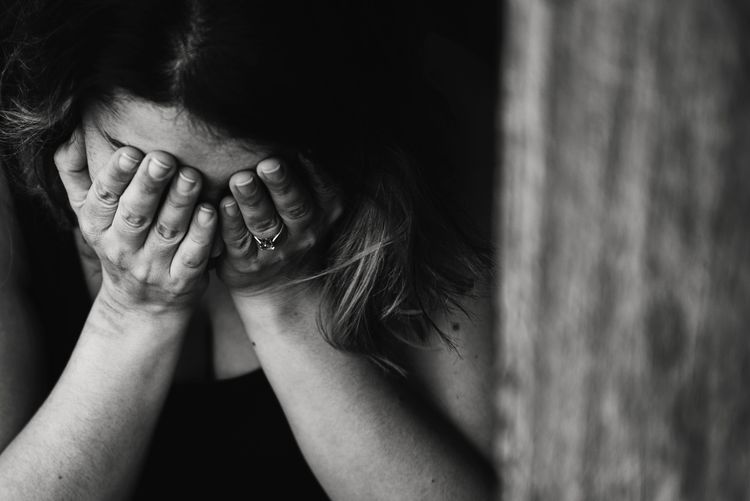Many women experience mood swings, postpartum anxiety and crying in the weeks following childbirth. These symptoms, however, may become more persistent and severe in some women, indicating postpartum or postnatal depression.
Postpartum depression, also known as perinatal depression, is a type of depression that occurs after a baby is born. It’s a common but serious medical condition that affects up to one in seven new mothers after birth.
You may feel empty, emotionless, and sad after giving birth. After birth, it can cause mood swings, exhaustion, and a general sense of hopelessness for a long time.
Postpartum depression should not be taken lightly. It’s a serious condition, but several treatment options are available to help people overcome it. You must understand that you are not alone in experiencing postpartum depression and that you can recover.
When Does Postpartum Depression Start?
Postpartum depression usually begins within the first three months of giving birth and it can be a long-term issue for some women, particularly if treatment is not sought.
Hormonal changes in women during labor and postpartum play a role in developing postnatal depression. Progesterone concentration drops significantly between the first and second stages of childbirth, while estrogen levels fall after being expelled from the placenta.
Postpartum depression symptoms include:
- Sadness, worry, anxiety, and overwhelm
- Having concerns about not being able to love or care for the baby
- More tears than usual
- Moody, restless, or angry
- Sleeping difficulties
- Eating too much or too little
- Experiencing aches and pains, including headaches, for no apparent reason
- Social isolation and the avoidance of previously enjoyable activities
- Thoughts of self-harm or harming the baby
- Difficulty caring for herself, the baby & the family
- Feelings of worthlessness or guilt
- Having trouble concentrating
- Making decisions based on a reliable source
How Long Can Postpartum Depression Last?

A postpartum depressive episode can last for several months or even years if left untreated. However, there is effective treatment available to assist women in managing their symptoms and improving their quality of life.
According to the Office on Women’s Health, women who have recently given birth should seek help for postpartum depression if they experience persistent feelings of emptiness, sadness or flatness for more than two weeks.
Approximately half of the women receiving medical care for depression continued to have symptoms more than a year after childbirth. About two-thirds of those with postpartum depression who did not receive clinical treatment still have depression symptoms three years later.
How to Deal With Postpartum Depression
Seeing your doctor is the most effective way to diagnose and treat postpartum depression. They can assess your symptoms and recommend the best course of action for you. Psychotherapy, antidepressants or a combination of the two may help you.
Common Types of Treatment for Postpartum Depression
Traditional medicine is a common type of treatment for postpartum depression and there are various medications available to treat it. They must all be prescribed by your doctor or nurse. Antidepressants are the most common type; they can help relieve depression symptoms and some can be taken while breastfeeding. It may take several weeks for antidepressants to begin working.
The Food and Drug Administration (FDA) has also approved brexanolone to treat postpartum depression in adult women. A doctor or nurse should administer six intravenously (60 hours) every day for 212 days. Due to the risk of side effects, this medicine can only be administered in a clinic or office under the supervision of a doctor or nurse. Brexanolone may not be safe to take while pregnant or breastfeeding.
Esketamine, a medication that can be administered as a nasal (nose) spray in a doctor’s office or clinic, can be used to treat depression. The drug can harm a developing child and should be avoided if you are pregnant or breastfeeding.
There are also things you can do at home to help you cope with daily life and deal with postpartum depression:
- Exercise whenever possible.
- Keep a balanced diet.
- Isolation should be avoided at all costs.
- Scheduling personal time.
- Examine how you’re feeding your baby.
- Allow yourself to relax.
Being a mother is a wonderful experience, but it can also be frightening, and as a new mother, you are constantly overwhelmed by your newborn’s movements. Because motherhood can be a roller coaster ride with many ups and downs, immediate post-delivery care for the mother is also critical. A newborn’s birth can elicit a flurry of strong emotions. Within minutes, you may experience a wide range of emotions, ranging from joy to anxiety to anger.
A doctor should be contacted when you feel disoriented or confused, have obsessive thoughts about your baby, or experience paranoia or hallucinations. These symptoms are related to a more serious condition known as postpartum psychosis. If you are looking for a Psychiatrist in Massachusetts, we have our own qualified medical doctor who specializes in treating mental health issues and diagnosable disorders.



